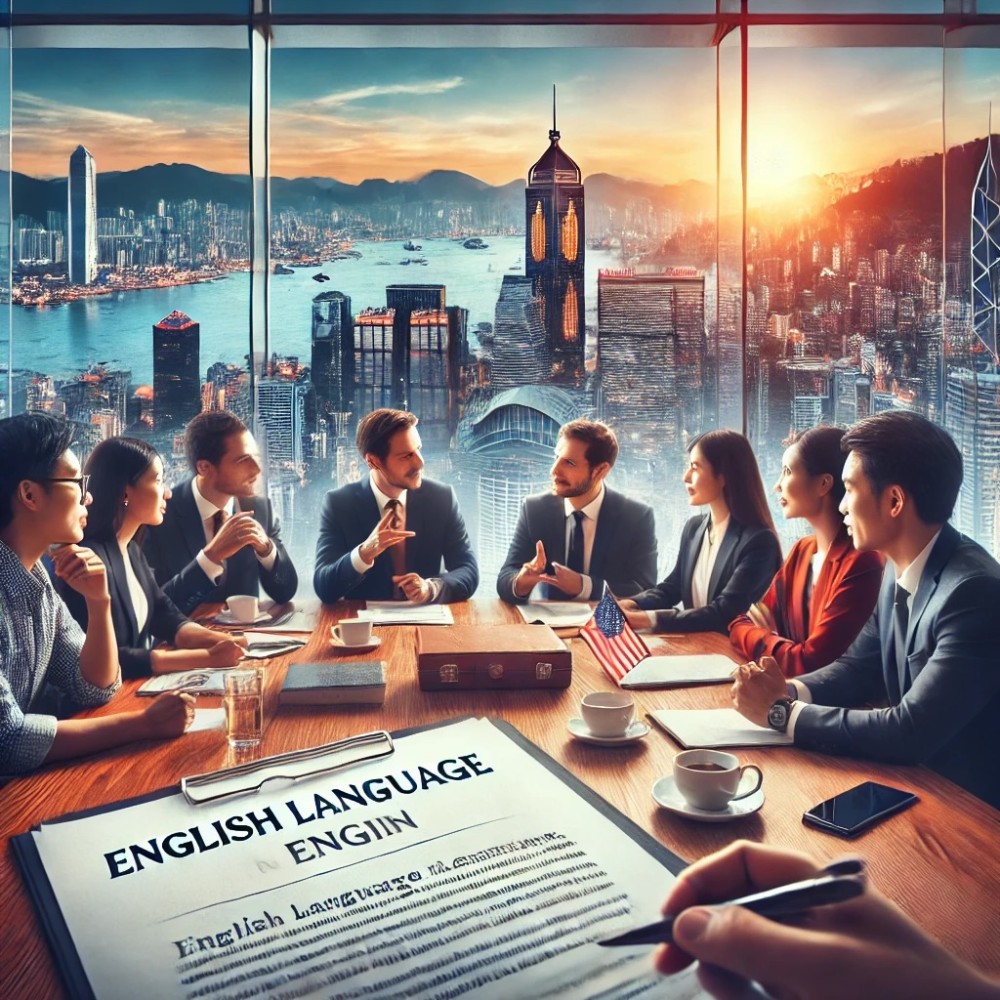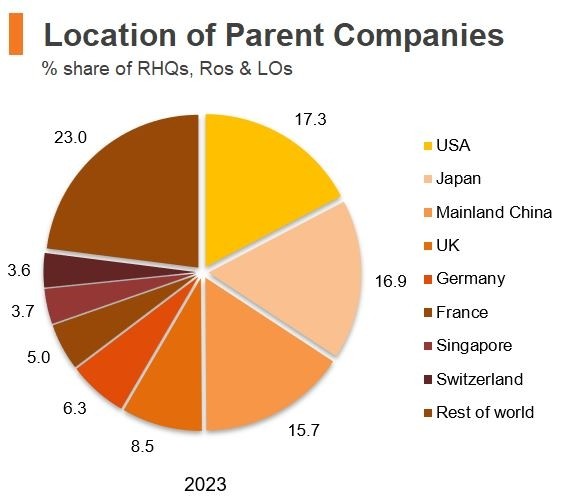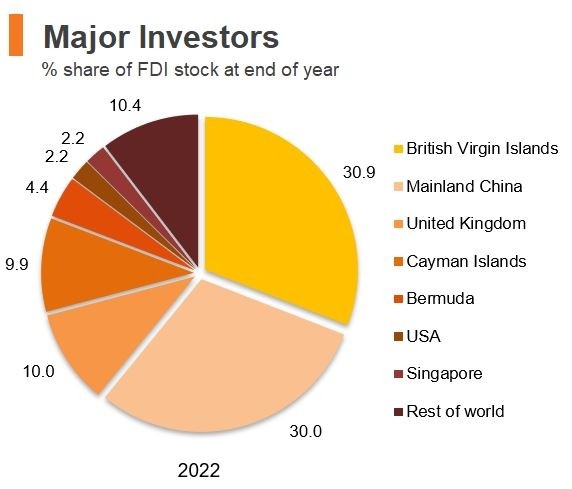 x
x
Since the founding of Hong Kong in 1841, Hong Kong has continuously played the role of a free trade hub, engaging in international commerce without restrictions. The city operates as a free-trade zone enhancing opportunities for entering global markets while ensuring efficient transportation and logistics. Hong Kong consistently ranks high in international trade freedom indices, and its commitment to free market principles has cemented its position as a global hub. Being a free port means that imports are exempt from customs duties, without sales or value-added taxes. This simple tax system has made Hong Kong a gateway for foreign enterprises entering the Asia-Pacific market.
For foreign businesses, Hong Kong offers a well-developed information infrastructure with free access to data, enabling companies to stay informed with the latest updates. As early as 1871, the first submarine communication cable in Hong Kong landed in Telegraph Bay, near today’s Wah Fu Estate, connecting to Shanghai. This was the first submarine communication line in East Asia, laid by Hong Kong’s earliest telegraph office, the Danish Great Northern Telegraph Company. On June 14 of that same year, the Governor of Hong Kong received the first telegram message from London. In 1882, Central Hong Kong became the first place in the Far East to use telephone services.
From kindergarten, Hong Kong residents begin learning English, and the general proficiency in English across the city is relatively high compared to other Asian cities. There is no language for foreign businesses entering the Hong Kong market. Even today, Hongkongers typically write emails and contracts in English. English is one of Hong Kong's official languages, and many contracts and laws are written in English. Hong Kong’s legal system is based on common law, which has been in place for nearly 180 years. This common law system originated in medieval England, and today, one-third of the world's population (around 2.4 billion people) live in jurisdictions governed by common law or mixed legal systems. The protection under Hong Kong’s legal system is a key reason why foreign investors choose to operate here.

Hong Kong residents are known for their honesty, integrity, and values that closely align with those of the West. They are also open to new ideas. Due to its unique historical background, Hong Kong has developed into a multicultural society where East meets West, making it an attractive destination for foreign investors to collaborate with locals.
The city's simple tax system fosters a business-friendly environment, and Confucian principles of social stability and hard work are deeply ingrained in Hong Kong culture. As a result, labour unions are not popular, which helps to reduce management costs.
According to SWIFT data from 2023, the US dollar accounts for over 45% of global foreign exchange transactions. Hong Kong’s Linked Exchange Rate System, implemented on October 17, 1983, operates under a strict, sound, and transparent currency board system, ensuring that the Hong Kong dollar exchange rate remains stable between 7.75 and 7.85 HKD per US dollar. This stable currency reduces the risks of exchange rate fluctuations for foreign investors. According to data from the Hong Kong Census and Statistics Department in 2023, American companies continue to consider Hong Kong an important location for investment, given its position on the Pacific coast and proximity to mainland China. Based on US Department of Commerce data, as of 2022, the stock of US foreign direct investment in Hong Kong accounted for 10.4%.


The Linked Exchange Rate System greatly facilitates American companies investing in Hong Kong, providing seamless currency conversion. As a result, many U.S. companies favor Hong Kong as a base for expanding into other markets in the Asia-Pacific region.
The protagonist of this story, Allie Medical Technology Company, is a U.S.-listed company headquartered in Silicon Valley. It effectively utilizes 3D printing technology to replace traditional metal materials with plastics, holding over 80% of the market share, making it a highly capable tech innovator.
Due to Hong Kong's medical regulatory system being aligned with those in Europe and the U.S., Allie Medical Technology’s products, once certified by the U.S. Food and Drug Administration (FDA), are allowed to be sold in Hong Kong. Allie entered the Hong Kong market 15 years ago, starting with distribution through agents, and it took five years to establish a local branch office. This was followed by a period of rapid growth for the company.
 Allie Medical Technology is a prime example of an American company expanding into the Asia-Pacific market. This story is based on my years of experience working for U.S. companies. The characters in the story, An Zhiren and Ma Yonglong, are also very typical of senior management personnel, and readers may find them familiar. Therefore, I must clarify that this story is purely fictional, and any resemblance to actual persons or events is purely coincidental.
Allie Medical Technology is a prime example of an American company expanding into the Asia-Pacific market. This story is based on my years of experience working for U.S. companies. The characters in the story, An Zhiren and Ma Yonglong, are also very typical of senior management personnel, and readers may find them familiar. Therefore, I must clarify that this story is purely fictional, and any resemblance to actual persons or events is purely coincidental.






















